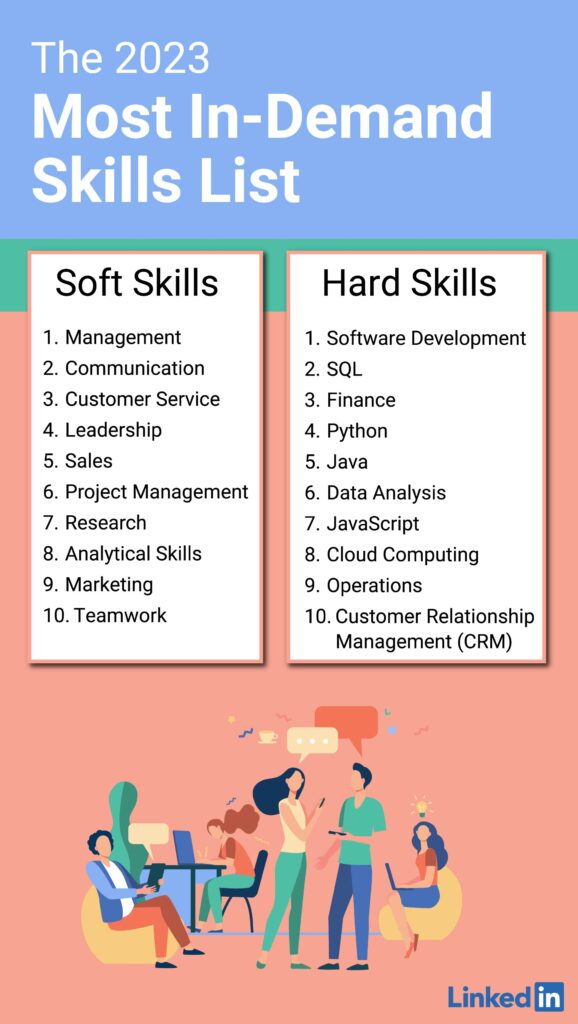When we’re talking about personal and professional development, the terms “skills” and “abilities” are often used interchangeably (a bit like Skills vs Strengths). But there’s a clear difference between them.
Skills are learned, while abilities are usually more innate. In this article, we’ll break this down more and give some examples of abilities vs skills.
Skills Vs. Abilities: Understanding the Difference
Defining Skills
Skills are learned behaviors that can be taught, tested, and measured. They are acquired through training, practice, and experience. For example, someone gets good at using Photoshop, cooking Thai, or playing guitar due to their effort and exposure in those areas.
We often divide up skills by type. Things like:
- Technical skills: Proficiency in specific tools, software, or equipment used within a job or field.
- Life skills: cooking, cleaning, self-care, etc.
- Soft skills: Interpersonal skills, such as communication, teamwork, and adaptability. Could also be things like collaboration skills.
- Transferable skills: Skills usable in different professions, like problem-solving and time management.
We talk a lot about skills on Roostervane because it’s literally the place you can learn and develop a competitive edge–by learning high-income skills.

Defining Abilities
Abilities, on the other hand, are natural or innate capacities to perform tasks. Some abilities can be improved through training or exercises, while others come naturally and are inherent in a person. Unlike skills, abilities can be more challenging to teach, test, or measure.
Here are some examples of abilities:
- Physical abilities: Strength, agility, stamina, or hand-eye coordination.
- Cognitive abilities: Intelligence quotient (IQ), critical thinking, or decision making.
- Emotional abilities: Emotional intelligence (EQ), empathy, or self-awareness.
So the main difference between skills and abilities is where they come from. Skills are learned. Abilities are somewhat innate.
But–of course–the two can go together. A hockey player might have an awesome innate coordination, but they still need to learn how to handle a puck.
Examples of skills vs abilities
Skills:
- Programming: Ever tried your hand at coding? It’s like learning a new language, but for computers. You can pick up languages like Python, Java, or C++.
- Cooking: Who’s the master chef in the house? Cooking is all about recipes and techniques. The more you cook, the better you get.
- Public Speaking: Picture this: you’re on stage, owning the room with your words. Public speaking takes practice. It’s a skill.
- Graphic Design: Graphic design means making visual magic with tools like Photoshop or Illustrator. You’ll nail down design tricks and image sorcery.
- Time Management: Ever wished you had more hours in the day? While we can’t change time, we can be wizards at using it. Time management is like boss-level planning.
Read more: LinkedIn’s 20 In Demand Skills of 2023 (+ Where to Learn Them)
Abilities:
- Creativity: You know those lightbulb moments? Some people are just packed with ’em. They’ve got a natural gift for thinking up fresh ideas.
- Musical Talent: Got rhythm? Some folks are born with music in their bones.
- Spatial Intelligence: Ever see things in 3D? Some people are like human architects, born to understand space and visuals.
- Photographic Memory: Some people have this crazy ability to capture and replay images and words in their minds.
- Empathy: Ever feel someone else’s vibes like they’re your own? That’s empathy. They’re the ones who get what you’re feeling even before you say it.
Remember, skills take practice and can be polished up over time. Abilities are like secret talents that you’re born with.
8 Questions to Map Your Skills and Competencies & How to Tell the Difference
Why does it matter?
Understanding skills vs abilities is important, because of control. You can’t control your abilities to an extent. You do control your skills. But ALSO, you can find skills that lean into your natural abilities and learn them. That’s why understanding abilities vs skills makes sense.
Practical Applications
Career Development
Practical skills and abilities play a vital role in individual career development. Because in choosing your career path, you sort of want to find a balance. For example, I’ve always been really creative. I can use it in a bunch of different ways, but learning how to write and do digital marketing led to a career trajectory of content marketing.
Whatever it is for you, you need to figure out how to blend the two. And you should consider marketable skills you might already have.
Finding the intersection of your abilities and skills (or learning new skills to match your abilities) will lead to higher career satisfaction.
Education and Training
When we’re teaching people, we need to understand the differences between skills and abilities. School treats us like identical beings that need to be crammed through the same system–but let’s be honest, that doesn’t work for people.
Conclusion
We use the terms skills and abilities a lot, and yeah, often interchangeably. But at the end of the day, skills vs abilities really comes down to learned vs innate.



